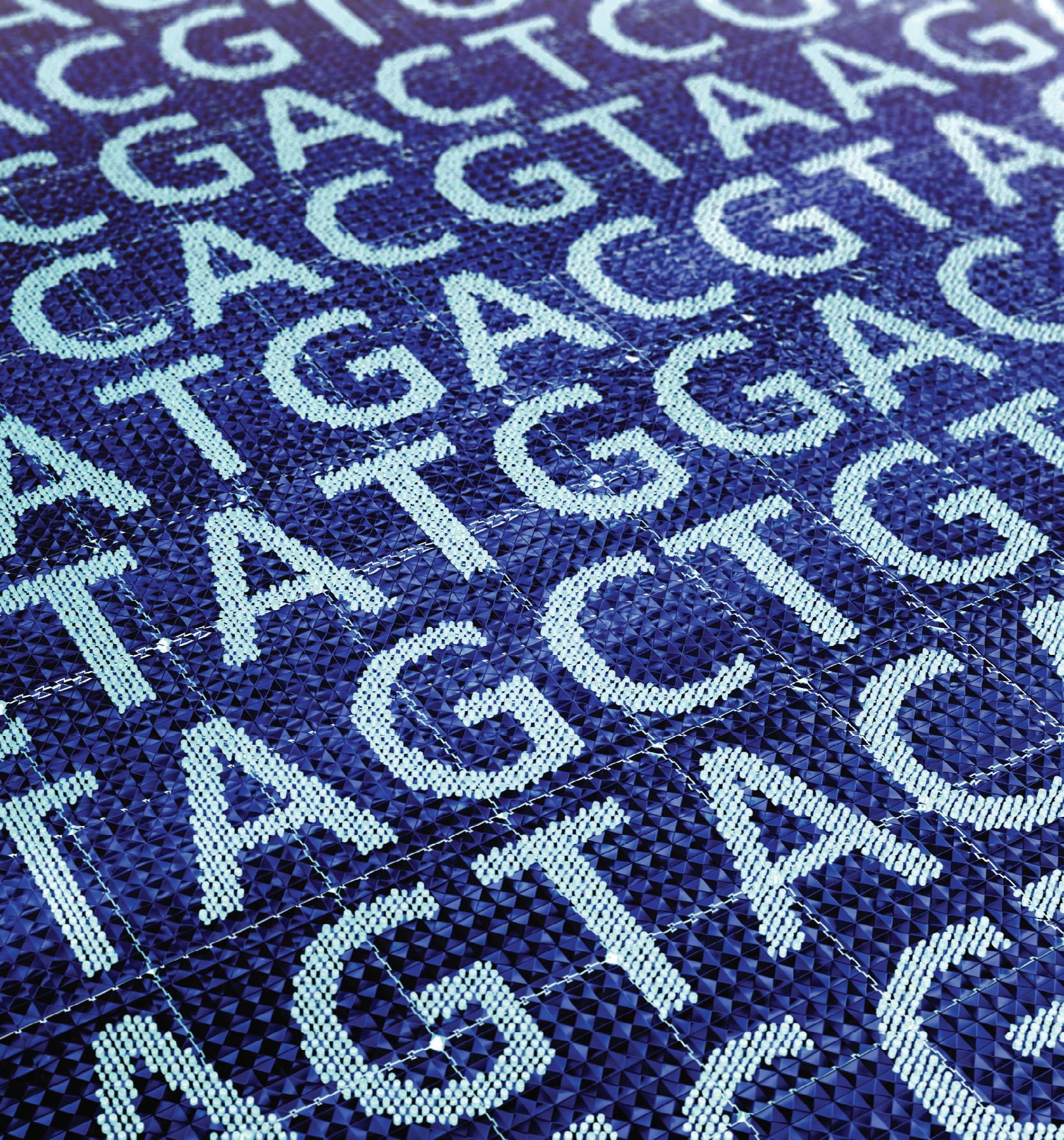
5 minute read
Pulse
Big Bytes
Advertisement
EFFECTIVE JULY 1, HMS will add a new Quad-based department to its roster. The establishment of this new entity, the Department of Biomedical Informatics, will, according to HMS Dean Jeffrey S. Flier, emphasize the vital role the field of bioinformatics has at HMS and underscore the prominent role the School has played in the field’s development throughout the past half century.
The department’s inaugural chair will be Isaac Kohane, director of the Countway Library of Medicine, the HMS Lawrence J. Henderson Professor of Pediatrics at Boston Children’s Hospital, and codirector of the Center for Biomedical Informatics (CBMI), the institutional predecessor to the new department. In 2014, CBMI, led by Kohane and Alexa McCray, an HMS associate professor of medicine at Beth Israel Deaconess Medical Center, brought in an array of federal grants that funded the establishment of large research collaborations among scientists on the Quad, at affiliated hospitals, and in the Harvard University Faculty of Arts and Sciences.
In his announcement, Flier explained why biomedical informatics is integral to contemporary medical research when he noted that “the field represents two converging communities: one involving health care-related data, and the other addressing the study of health and disease at molecular and naturally occurring systems level.”
Mastering the surge in biomedical data streams goes beyond storage and computation. It includes developing and applying new methods for both research and clinical care. Central to the department’s mission will be addressing methodological, engineering, and educational challenges. CBMI already has a strong history of education through its involvement in master’s- and doctoral-level programs. The new department will continue to expand this commitment to education. It will launch with five core faculty members who are now associated with CBMI, and recruits will be added in the coming years to achieve representation from across the field.
d
HEALTH FOR ALL: The Mohammed Bin Rashid Academic Medical Center within Dubai Healthcare City is made up of a medical university, a medical library, and a medical simulation center.
Foundation of Care
New center in Dubai will focus on community health
acooperativeagreement signed in January by HMS and the Dubai Healthcare City Authority not only established the HMS Center for Global Health DeliveryDubai but also signaled support for the center’s mission: to increase local and regional health delivery research capacity, and, by extension, improve the health of the people living in Dubai and throughout the United Arab Emirates.
The new health research and training center will address some of the more pressing health challenges in Dubai and the region, expanding Dubai’s role as a global hub for scientific and policy discussions related to health care delivery. Funding for the center will be provided by a fouryear grant from the Dubai Harvard Foundation for Medical Research.
“We are privileged to partner with our colleagues in Dubai to generate best practices in global health delivery and to transform these practices into improved health outcomes in Dubai, the region, and the world,” said Jeffrey S. Flier, HMS dean.
The new center, directed by Salmaan Keshavjee, an HMS associate professor of global health and social medicine and director of the Program in Infectious Disease and Social Change in the Department of Global Health and Social Medicine, will be based at the Mohammed Bin Rashid Academic Medical Center in Dubai Healthcare City, a medical center campus.
Her Excellency Raja Al Gurg, vice-chairperson of Dubai Healthcare City Authority, attended the signing ceremony. “The work of the center,” she said, “will support our long-term commitment to improving the health of all communities within Dubai and enhance our opportunities to lead the region in advancing health care research and delivery.”
The new center will allow HMS, working with researchers and care providers from the health authorities in the UAE, to stimulate research and education aimed at improving health care capacity in such areas as surgical outcomes, treatments for diabetes and obesity, treatments for infectious diseases such as tuberculosis and hepatitis C, and mental health disorders.
The activities of the center also aim to strengthen the research environment in Dubai, the UAE, and the region and to contribute to regional social and economic development. The center will expand training capabilities for regional faculty and students but will not provide patient care. —Stephanie Dutchen
BENCHMARKS DISCOVERY AT HARVARD MEDICAL SCHOOL

BROWSER BEWARE Concerns raised over online marketing of genetic tests for cancer
websites that market personalized cancer care services often overemphasize benefits and downplay limitations. In addition, many sites offer genetic tests whose value for guiding cancer treatment has not been shown to be clinically useful.
According to a study reported by HMS researchers in the May issue of the Journal of the National Cancer Institute, the unregulated nature of online marketing of cancer-related genetic tests contributes to an unbalanced representation of the tests’ benefits and limitations.
In their analysis of fifty-five websites offering these services, says first author Stacy Gray, “we found a lot of variation.” In addition, 88 percent of the websites offered one or more nonstandard test that lacked evidence of clinical utility in routine oncology practice.
Gray, an HMS assistant professor of medicine at Dana-Farber Cancer Institute and an investigator in the Dana-Farber Center for Outcomes and Policy Research, was part of a team that included Katherine Janeway ’00, an HMS assistant professor of pediatrics at Dana-Farber.
The investigators analyzed precision, or personalized, cancer medicine products and services marketed by such entities as private companies, academic medical centers, physicians, and research institutes.
Precision cancer medicine often refers to the testing of DNA from a patient’s tumor to detect mutations or other genetic abnormalities that may help physicians predict how the disease will behave, and, in a limited but growing number of cases, in their selection of a therapeutic agent targeted to the particular mutations found. Such targeted agents may be more effective and cause fewer adverse effects than those used in standard chemotherapy.
More than 50 percent of the websites reviewed offered somatic testing, which is the genetic characterization of the tumor itself, while 20 percent marketed germline testing, which analyzes the patient’s genome. Germline testing may identify altered genes that could indicate the risk of developing cancer. In addition, 44 percent of sites offered some form of personalized cancer care, with some claiming that their products led to treatments that increased life expectancies and others indicating that their analyses of tumors could identify effective treatments for a given cancer.
Claims and information posted on Internet sites are not regulated by agencies such as the U.S. Food and Drug Administration. The FDA recently indicated, however, that it intends to begin regulating genomic testing more broadly.









